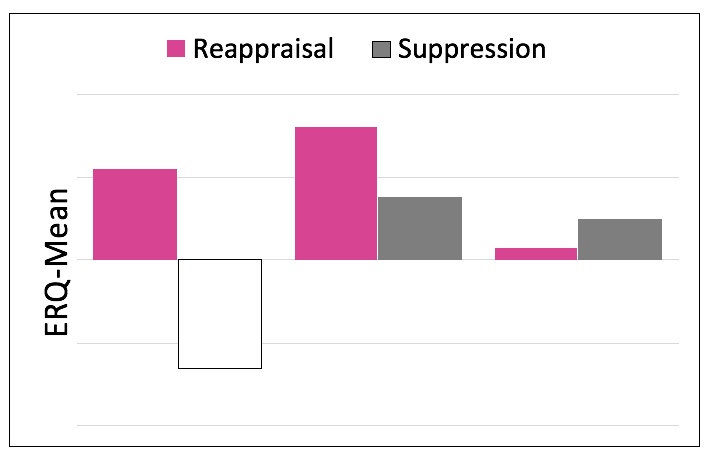By Yekun Qin, Adam Kim, Jenny Su, Alison Hu, and Richard M Lee
Growing up in a White family does not necessarily protect internationally adopted Korean Americans from the harmful effects of racial/ethnic discrimination on adjustment. Previous studies have found that experiences of discrimination are related to worse adjustment among transracial adoptees. To cope with these negative effects, transracial Korean adoptees may use different combinations of emotion regulation strategies, such as cognitive reappraisal (i.e., reframing the discrimination situation in a less negative way) and emotional suppression (i.e., inhibiting on-going emotion expression). However, there is limited research on how transracially adopted Korean American adolescents’ emotion regulations may moderate the link between discrimination and adjustment.
To address this gap in the literature, we surveyed 120 parents of Korean adopted children (ages 5-12) in 2007 and followed up with these parents and their now adolescent aged children (ages 13-19) again in 2014. As part of the survey, parents reported the behavioral adjustment of the children in 2007 and 2014. Adolescents also reported their typical emotion regulation strategies and their experiences with discrimination in the 2014 survey. We first identified different emotional regulation strategies profiles employed by the adolescents. We then examined the discrimination-adjustment link (using 2014 adolescent reports) controlling for their childhood behavioral adjustment scores from 2007. Finally, we examined whether different combinations of emotion regulation strategies changed (e.g., increased, decreased) the effect of discrimination on adjustment.

As illustrated in Figure 8, Korean adoptees displayed three distinct emotion regulation profiles. A relatively high score on reappraisal and a very low score on suppression characterized the High Reappraisal/Low Suppression (HR/LS) group. A relatively high score on reappraisal and a moderate score on suppression characterized the High Reappraisal/Moderate Suppression (HR/MS) group. A moderate score on both reappraisal and suppression with the suppression score being higher than the reappraisal score characterized the Moderate Reappraisal/Moderate Suppression (MR/MS) group. After taking into account the behavioral adjustment of the adoptees in childhood, discrimination was still related to poor adjustment in adolescence. Finally, the three different emotion regulation profiles did not change the impact of discrimination on adjustment. However, adopted Korean adolescents with the HR/LS profile reported the best adjustment in general.
Overall, these finding provide further support for the strong negative effects of discrimination to adolescent adjustment. Although the emotion regulation profiles did not change the pernicious effects of discrimination, adoptees who are able to re-appraise stressful situations and not suppress their emotions showed the best behavioral adjustment.



